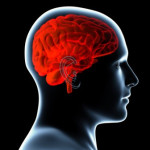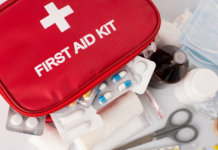High blood pressure has a direct relation to your brain health. Continue reading to find out about the intimate connection between your heart and your brain.
High blood pressure, or hypertension, is a serious chronic condition that develops over time. In most cases, it is caused by factors such as lifestyle and diet. Major risk factors associated with high blood pressure are:
• Smoking
• Diet rich in trans fats and sodium
• Alcohol consumption
• Sedentary lifestyle
• Obesity
High Blood Pressure
Because of the condition’s gradual onset, symptoms are rare. However, when they do manifest the disease is often in an advanced stage. The usual symptoms are:
• Headaches
• Pounding in the ears, neck, or chest
• Impaired vision
• Fatigue
• Irregular heartbeat
That being said, high blood pressure is hard to detect in the early stages without regular check-ups. Unfortunately, most young people believe that hypertension is old people’s disease and rarely suspect that they could be affected.
Recently, a study published in Lancet Neurology has concluded that high blood pressure in the 30s and 40s can harm brain health in later life. Researchers believe that high blood pressure early on in life can increase the risk of dementia. They recommend early monitoring of blood pressure to prevent its damaging effect on the brain.
 Brain Shrinking
Brain Shrinking
As we age, the brain loses a little bit of its volume. This is normal and scientists are well-aware of these slight changes. But, the interesting thing is that the brains of people suffering from dementia shrink even more.
This shrinking of the brain can be observed years before any cognitive impairment occurs. In a way, it is a warning sign for dementia.
So, early-onset of high blood pressure, in the 30s and 40s, causes damage to the blood vessels, including those located in the brain. This damage seriously affects brain structure later in life, says Professor Jonathan Schott, neurologist and a leader of the research team at the UCL Queen Square Institute of Neurology.
Above all, he recommends regular monitoring of blood pressure before the age of forty. Scientists now believe that this early management of high blood pressure (before the early 50s) can have very positive effects on brain health later in life.
It is no longer a question whether high blood pressure in early mid-life causes later changes in brain function, but can early treatment prevent these changes, says Professor Paul Leeson from Oxford University.
We need to work more to raise awareness among young people about the importance of early blood pressure monitoring and management. In this way, we can help the future elderly to have a much better quality of life.
 Prevention and Treatment
Prevention and Treatment
In most cases, lifestyle and dietary changes are the best way to prevent high blood pressure. Rarely, hypertension is a consequence of an underlying condition, such as heart disease. This is what you can do to prevent high blood pressure:
• Eat a healthy and well-balanced diet
This is very important. Your diet should be low in simple carbs (sugars). They are the number one cause of obesity. Too much salt and animal fats are also not good. The best way to go is to include in your diet as many raw fruits and vegetables, lean meats, complex carbs (legumes, whole wheat bread, etc.), and low-fat dairy products as possible.
• Quit smoking
Smoking is a risk factor for all chronic diseases and many types of cancer.
• Be physically active
Physical activity promotes heart health, relieves stress, and it helps you to maintain healthy body weight.
• Lose weight
Obesity is associated with an increased risk of diabetes, heart disease, and hypertension.
• Limit alcohol intake
It is scientifically proven that alcohol raises blood pressure.
• Find a way to manage stress
Increased blood pressure is a normal part of the body’s fight-or-flight response. This is a survival mechanism triggered by stress. Because of this, constant exposure to stress increases the risk of hypertension.
Regular monitoring of blood pressure is a part of both prevention and treatment. If you check your blood pressure regularly you can react on time and prevent damage to organs and tissues.
Medications can help you to keep your blood pressure under control. However, physical activity and a healthy diet are extremely important if you want to avoid potential complications.
 The Bottom Line
The Bottom Line
It is very important to start checking blood pressure earlier in life. This chronic condition rarely has noticeable symptoms but it can do a lot of damage. With the newly discovered link between high blood pressure and dementia, this becomes even more obvious.


 Brain Shrinking
Brain Shrinking Prevention and Treatment
Prevention and Treatment The Bottom Line
The Bottom Line

